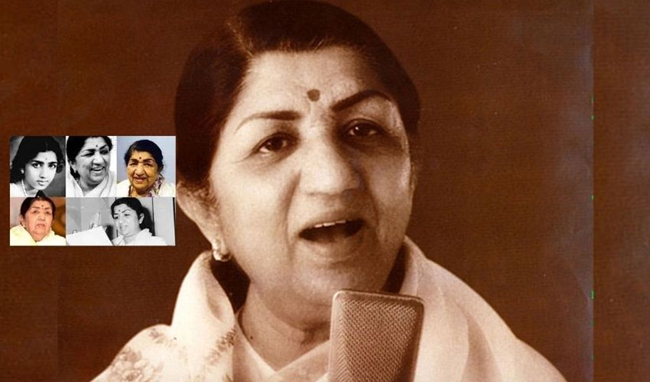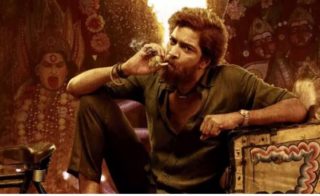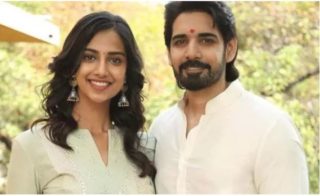
Lata Mangeshkar, a name that every Indian actually every music lover who listened to Hindi Indian songs around the world, would identify with a wide smile on their faces. The number of songs she sung and the way she rendered beautiful emotions through her voice giving life to beautifully written words, it would be a disservice to not have a smile remembering her.
She survived for generations in Hindi Cinema and many composers right from Naushad to Khayyam to Manmohan to SD Burman to RD Burman to Ravi to Shankar-Jaikishan to Lakshmikant Pyarelal to Ghantasala to KV Mahadevan to Salluri Rajeswarara Rao to MS Vishwanathan to Chakravarthy to Ilayaraja to AR Rahman, every great composer in Indian cinema dreamt about working with her. And she sung for them even in her 70’s when the song was appropriate.
Such was her longevity and passion towards work. She was such a dedicated being to her craft, she never married. She feared the person whom would come into her life as partner might not agree to her pursuing her craft and she chose to live a life that worships goddess of music, Saraswati.
Right after Vasantha Panchami, the day when most of the people who trust and follow Hinduism would celebrate Saraswati Puja, she has decided to join the chamber of Hiyagriva, Narada, MS Subbulakshmi, SP Balasubramanyam, Mohammad Rafi, Kishore Kumar, Ghantasala, Meera bai in the divine consort of musicians, in front of Devi Saraswati. But this still feels too early for her to leave us.
To count the number of honors she received, we can say that she received Dada Saheb Phalke award and she was the second female singer after MS Subbulakshmi to receive Bharat Ratna, Indian highest civilian award and only female Indian singer to receive France’s highest civilian honour, Officer of the Legion of Honour. And to add to them she received 3 National Awards, 15 Bengal Film Journalists Association awards, four Filmfare Best Playback singer awards, two special Filmfare awards and Filmfare Lifetime Achievement award as well.
But these honours can be described as tiny words of appreciation to the enormous joy she left for all of us. She recorded songs in thirty six languages and sung most of her songs in Hindi and Marathi languages. In fact, her voice became synonym to Melody on screen so much that she got the name, “Queen of Melody”. Jawaharlal Nehru conferred her with “Nightingale of India” badge while describing her performance when she Ae Mere Watan ke Logo in front of him, asking people of India to support Indian army, during Indo-China war. She left even the great man teary eyed after she completed her rendition.
She was called “Kudrat ki Karishma (miracle of God/Nature)”, “Kambhkt ki kabhi Besuri na hoti (She never goes off-key or off-note)”, by legends like Dilip Kumar and Ustad Bade Ghulam Ali Khan.
She found her name being etched into the prestigious Guinness Book of World Records for singing most number of recorded songs by a female. The record for male is with SP Balasubramanyam.
Daughter of Deenanath Mangeshkar, she started her career in Marathi Cinema way back in 1942, at the age of 13. Being the eldest daughter of her family, she had to take of her brother and sisters, Hridayanth Mangeshkar and Usha Mangeshkar, Meena Kadikar, Asha Bhonsle. Each one of them followed their father’s footsteps by dedicating their lives to music.
She dedicated her life to looking after their well-being and achieving the pinnacle in music industry. She had many fears about losing her voice and she always advised her colleagues to look after their well-being.
She treated Balasubramanyam as her son and always used to remind him about meeting her at least once annually until his death. She always treated every person with utmost respect and accepted every bit admiration with humility.
She was so humble throughout her life that if someone did not receive her call or couldn’t return her message, she used to start her next message to them by saying, “Hum se koyi bhul hogayi kya (Did I do something wrong)”.
Asha Bhosle after becoming a sensation herself in Bollywood, shared that Lata di would never let her forget the moment she would go off-note. She described her passion to always sing on perfect pitch as horrifying, gratifying and traumatic as a sibling yet a blessing to learn from as a guru.
In 2004, she could lend her voice to Veer-Zaara songs composed by Manmohan originally in 1960’s and still let the youngsters identify with her. It felt like 2000’s generation got transported to her prime time with soothing melodious voice, compositions.
Such was her talent and impact she created on Indian music, sorry Global Music Industry will last forever and ever. Her humanely presence and blessings that bestows upon every soul with pure heartfelt melody will be missed but she left so many more memories that hundred more lifetimes will also not be enough to fully capture them. Lata Mangeshkar will live on.
























